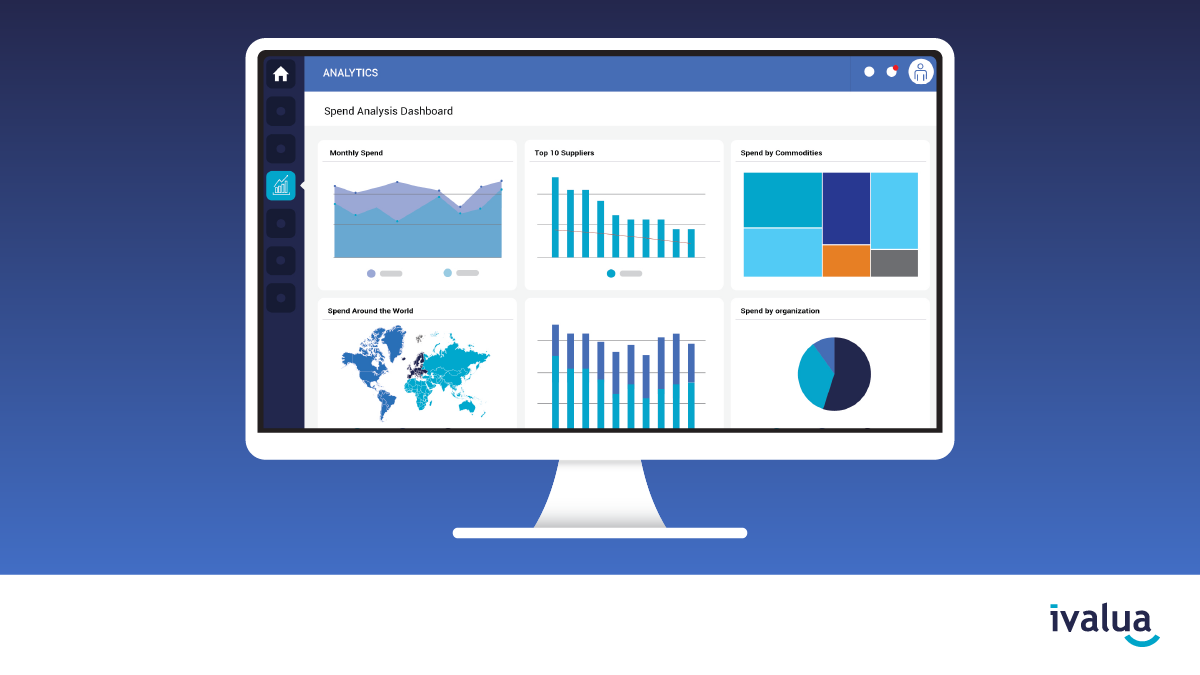Introduction
As businesses look to streamline operations and gain better visibility into spending, procure to pay (P2P) software has become increasingly important. P2P solutions help automate manual, paper-based procurement tasks like purchase requisition, invoice processing and payments. They provide businesses of all sizes powerful tools to manage spending, drive savings and compliance. In this blog, we evaluate the top 15 P2P software providers based on key criteria to help you select the right one.
Methods of Evaluation
To evaluate these 15 procurement software companies, we looked at factors like number and depth of modules, integration capabilities, pricing options, analytics and reporting features. We also considered customer reviews, ratings and case studies. In addition, we leveraged metrics like number of backlinks, traffic and keyword search trends to help determine the prominence and popularity of each vendor. This provided a well-rounded view of the relative strengths and weaknesses of each solution.
1. IBM Sterling Supply Chain Suite
IBM Sterling Supply Chain Suite is a comprehensive procure-to-pay software offered by IBM. It provides organizations with modular applications to streamline key procurement processes from supplier information management and strategic sourcing to purchase orders, invoice processing and payment. With over 30 years of experience in supply chain management, IBM Sterling Supply Chain Suite aims to help organizations drive savings, increase visibility and reduce risk across their global supply chains.
Pros: Some key advantages of IBM Sterling Supply Chain Suite include: Broad suite of procurement modules, Advanced supplier info management, Strong analytics and reporting
Cons: A potential disadvantage is that IBM Sterling Supply Chain Suite requires substantial investment and resources to implement fully due to its vast features and functionalities.
Pricing: IBM Sterling Supply Chain Suite pricing is not publicly disclosed and depends on multiple factors like number of users, modules, customizations etc. It is usually offered via an annual subscription licensing model but can also be purchased outright for larger enterprises.
Some key stats about IBM Sterling Supply Chain Suite include: It manages over $500 billion in annual B2B commerce for top companies. It supports 43 languages and 150+ currencies. It processes over 1 billion transactions every year for customers worldwide.
2. Infor
Infor is a leading provider of industry-specific cloud ERP solutions. Founded in 2002, Infor focuses on providing pre-configured ERP software tailored to specific industries out of the box. Some of the industries supported include manufacturing, distribution, healthcare, public sector, fashion and more. The company aims to simplify ERP adoption through its pre-configured solutions which are optimized for the unique needs of each industry.
Pros: Some of the key advantages of Infor’s procure to pay software include:
– Integrated ERP solutions that work together seamlessly
– Powerful analytics capabilities powered by AI/ML
– Automated invoice processing and workflows
Cons: A potential disadvantage is the lack of flexible customization compared to other more generic ERP solutions since Infor focuses on pre-configured industry templates.
Pricing: Infor offers flexible pricing models including perpetual licenses and subscription-based pricing. For procurement and accounts payable modules, pricing starts from $150 per user per month for the cloud versions.
Some key stats about Infor include:
– Over 68,000 customers in more than 170 countries
– Over 200 industry-specific cloud solutions
– Over 15,000 employees worldwide
– Record of over 30% year over year growth
3. SAP Ariba
SAP Ariba is a leading procure-to-pay software used by over 3.5 million companies globally. As one of the largest and most established spend management solutions, SAP Ariba provides a comprehensive suite of procurement, invoicing, and analytics tools to help organizations gain control and visibility over spending.
Pros: Some key advantages of SAP Ariba include:
– Widely used global solution with a strong existing supplier network.
– Advanced analytics and reporting capabilities to gain insights from spending data.
– Robust suite of procurement, sourcing, contracting and spend analysis tools.
Cons: One potential disadvantage is the large implementation requires significant time and resources for onboarding and change management due to the breadth of the solution.
Pricing: Pricing is typically based on annual spend under management and number of users. Implementation and support services are also additional costs on top of standard subscription licensing fees.
Some key stats about SAP Ariba include:
– Over $3.4 trillion in annual commerce facilitated on the Ariba Network.
– Network of over 4 million suppliers connected.
– Used by over 1,700 customers in over 120 countries.
4. SAP Concur
SAP Concur is a leading provider of integrated travel, expense and invoice management solutions. Founded in 1993, SAP Concur helps organizations of all sizes automate financial processes and simplify spending. With SAP Concur, businesses can gain visibility and control over spending with automated approval workflows and real-time expense reporting.
Pros: Some key advantages of SAP Concur include:
– Integrated travel and expense management allows users to book travel, submit expenses, and get reimbursed all from one platform.
– Comprehensive supplier networks for easy travel booking and spend visibility.
– Automated invoice processing through AI-powered capture and optical character recognition to extract data from invoices.
Cons: One potential disadvantage is the upfront cost – SAP Concur has tiered pricing based on the number of users that can make it expensive for smaller businesses to implement.
Pricing: SAP Concur offers flexible subscription-based pricing with monthly or annual plans. Pricing is tiered based on the number of users with starting costs of around $7-10 per user per month for basic expense and invoice functionality.
Some key stats about SAP Concur include:
– Used by over 40,000 companies globally
– Supports over 30 currencies
– Processes over $1 billion in expenses every month
– More than 75 million trips booked annually through their travel booking platform
5. TradeGecko
TradeGecko is a procure to pay software that is focused on helping small and medium sized businesses manage their supply chains. Founded in 2015, the company has its headquarters in Singapore and has raised over $100 million in funding to date. TradeGecko provides an integrated platform to help businesses with procurement, inventory management, purchasing, and accounts payable.
Pros: Some of the key advantages of TradeGecko include:
– Intuitive and easy to use interface making it very SME friendly
– Strong inventory management capabilities to help track stock levels across channels
– Powerful purchase ordering functionality to help simplify the procure to pay process
– Multi-channel capabilities allow businesses to manage products and sales across all sales platforms
Cons: One potential disadvantage is that the platform may not be as fully-featured as some of the more expensive enterprise solutions targeted at very large businesses.
Pricing: TradeGecko offers three pricing tiers – Basic ($49/month), Pro ($99/month) and Enterprise (custom pricing). The Basic plan covers the core procurement features while the Pro plan adds additional integrations and support.
Some key stats about TradeGecko include:
– Used by over 5,000 companies globally
– Integrations with over 50 ecommerce platforms including Shopify, Amazon, eBay, WooCommerce etc
– Has over 150 employees
6. GEP
GEP is a leading provider of procure-to-pay (P2P) software. Founded in 1999, GEP has over 25 years of experience developing cloud-based P2P solutions and now serves over 3,000 global clients. GEP offers a comprehensive suite of P2P capabilities including sourcing, procurement, contract management, supplier management and analytics.
Pros: Some key advantages of GEP’s P2P software include: Cloud and on-premise deployment options, powerful AI/analytics for advanced spend analytics and process automation, and a robust supplier network for increased visibility, compliance and savings.
Cons: While GEP offers a very comprehensive P2P solution, some potential drawbacks could be the complexity of fully utilizing all of its advanced capabilities and the need for professional services/implementation support.
Pricing: GEP offers flexible pricing based on the number of users, transactions and level of functionality required. Plans include perpetual or annual subscription licenses. Implementation, customization, integration and training services are typically sold separately starting at $50,000 on average.
Some key stats about GEP’s P2P solution include: processing over $1 trillion in annual client spend, managing 40,000+ suppliers in over 145 countries, and supporting 30+ languages and 150+ currencies. GEP is regularly recognized as a leader in P2P software by top analyst firms like Gartner, Forrester and IDC.
7. JAGGAER
JAGGAER is a leading source-to-pay software provider that offers a comprehensive procurement platform. Founded in 2005, JAGGAER helps organizations gain control and visibility across the entire source-to-pay process. The platform helps streamline and automate purchasing, accounts payable, strategic sourcing and other procurement functions.
Pros: Key advantages of the JAGGAER platform include:
– Configurable workflows that can be tailored to specific business needs
– Automation of AP and AR processes for improved efficiency
– Strategic sourcing solutions to optimize sourcing events and manage contracts
Cons: A potential disadvantage is the platform requires significant configuration which can increase implementation time and costs.
Pricing: JAGGAER offers flexible pricing models including quote-based pricing and subscription licensing. Pricing depends on factors like the number of users, spend under management, modules/features needed.
Some key stats about JAGGAER include:
– Used by over 5000 customers worldwide
– Processes over $150B in annual B2B spend
– Integrates with over 200 ERP systems
– Supports 45+ languages
8. AvidXchange
AvidXchange is a leading provider of accounts payable (AP) automation software for middle-market businesses. Founded in 2000, AvidXchange has helped thousands of companies and their suppliers automate invoice and payment processes to optimize their back-office operations.
Pros: Some key advantages of AvidXchange’s procure to pay software include:
– Electronic invoicing allows suppliers to send invoices digitally which are automatically entered into the system
– Automated invoice processing extracts data from invoices and matches to appropriate purchase orders
– Invoice approval workflows ensure invoices are properly reviewed before payment
Cons: One potential disadvantage is that setup and onboarding for a new client can take some time as their invoice and payment data needs to be migrated to the AvidXchange platform.
Pricing: AvidXchange offers pricing plans tailored for different business sizes. Pricing is typically based on the number of invoices/payments processed per month ranging from around $150-300 per user.
Some key stats about AvidXchange include:
– Processes over $120 billion in annual payments
– Handles over 7 million invoices per year
– Served over 8,000 clients since inception
– Supports payment to over 1 million unique supplier banking accounts
9. Basware
Basware is a global leader in procure to pay solutions, with over 20 years of experience helping organizations digitally transform their source-to-pay processes. The Basware Purchase-to-Pay platform streamlines the entire procure to pay process, from requisitioning, sourcing and purchasing to invoice processing, three-way matching and payment. With Basware, organizations can gain end-to-end process visibility, reduce costs, manage supplier relationships and compliance.
Pros: Some of the key advantages of the Basware Purchase-to-Pay solution include:
– Streamlined invoice processing that allows invoices to be digitally captured, matched to POs and approved online
– Strong AP automation capabilities that reduce manual tasks and speeds up the invoice approval process
– Advanced spend analytics and reporting tools that provide insights to optimize spending
Cons: One potential disadvantage is the upfront implementation and setup costs associated with a full procure-to-pay platform. However, Basware aims to offset these costs through the efficiencies and cost savings realized from automating procure-to-pay processes.
Pricing: Basware offers a variety of pricing models including perpetual licensing and SaaS/subscription-based models. Pricing is typically based on the number of invoices processed per year, number of users and specific modules/capabilities being used. For small businesses, pricing starts at $99/user per month.
Some key stats about Basware include:
– Over 20,000 customers globally across both the private and public sector
– Processes over 1 billion transactions annually worth over $300 billion
– Has a global reach with 35 offices worldwide
10. DiscoverOrg
DiscoverOrg is a leading B2B sales intelligence platform that provides structured data on companies, contacts, technologies and purchasing signals. With over 280 million business profiles and growing, it is one of the largest business databases available today. DiscoverOrg aims to help sales and marketing teams accelerate growth through strategic sourcing and engagement.
Pros: Key advantages of using DiscoverOrg include:
– Supplier data management – Centralized database to research and qualify new suppliers
– 360-degree supplier insights – Comprehensive overview of supplier capabilities, financials, relationships etc.
– AI-driven matching – Industry-leading matching algorithms for finding companies and contacts
Cons: A potential disadvantage is that the free version only provides limited access to contacts and profiles. However, paid subscriptions unlock the full capabilities of the platform.
Pricing: Pricing starts at $99/month for the Standard plan which includes 750 API calls and search access to profiles and contacts. The Professional plan is $199/month and offers unlimited API calls and additional features for larger teams. Enterprise subscriptions with custom pricing are also available.
Some key stats about DiscoverOrg include:
– Over 280 million business profiles from 225+ countries
– Over 900 data pillars collected on each firm
– AI-driven matching provides accurate contact and company insights
– Continuously updated with 50,000 new records added daily
11. Ivalua
Ivalua is a leading provider of cloud-based procurement software. The Ivalua platform offers a modular and unified source-to-pay solution to manage all spend and suppliers in one place. With over 200 pre-built connectors, Ivalua can integrate with any ERP or financial system.
Pros: Some key advantages of the Ivalua platform include: Its modular platform approach allows customers to implement solutions incrementally, The robust supplier network facilitates collaboration and communication, Advanced reporting and analytics provide visibility into spending across the organization.
Cons: A potential disadvantage is that, as a subscription based SaaS platform, there are ongoing license costs compared to an on-premise perpetual license model.
Pricing: Ivalua pricing is based on a annual subscription model. Pricing varies based on the number of users, modules implemented, and level of support/services required. Contact Ivalua sales for a customized quote.
Some key stats about Ivalua include: Used by over 300 customers worldwide in over 90 countries, Processes over $500B in spend annually through the platform, Over 25 years of experience in procurement technology, Over 3000 suppliers actively participating in their network.
12. Capillary
Capillary is an omnichannel customer engagement platform that provides procure to pay software. The company was founded in 2012 and is headquartered in Singapore. Capillary helps companies enhance customer experiences and increase loyalty through personalized engagements across all digital and physical touchpoints.
Pros: Some key advantages of Capillary’s procure to pay software include: - Spend based promotions and incentives for suppliers - Supplier catalog and marketplace for easy sourcing - Reverse auctions and competitive bidding to negotiate better prices - Automated workflow for invoice processing, approvals and payments - Centralized vendor management and visibility across spend
Cons: One potential disadvantage is that the software may require some customization and configuration depending on the specific needs and processes of each organization.
Pricing: Capillary offers flexible pricing models for its procure to pay software including per user pricing and enterprise pricing based on the number of invoices processed annually. On-premise installations are also available. A free trial is offered to help businesses evaluate the software.
Some key stats about Capillary’s procure to pay software include: - Over 500 customers worldwide across industries like retail, CPG, travel, hospitality etc. - Processes over $10 billion in transactions annually - Automates invoice processing and purchase order management for over 10,000 suppliers globally
13. SAP Fieldglass
SAP Fieldglass is a cloud-based vendor management system and services procurement platform. It helps organizations find, engage, and manage all types of flexible resources including contingent labor, statements of work, independent contractors, and services procurement. Some key capabilities include vendor selection, engagement, performance, and payment.
Pros: Some key advantages of SAP Fieldglass include:
– Unified platform approach to manage all types of flexible workforce and services procurement processes.
– Robust vendor network and marketplace to source the right providers.
– Strategic workforce solutions like statement of work automation, compliance, and workload analytics.
– End-to-end vendor management including sourcing, engagement, performance, invoicing and payment.
Cons: One potential disadvantage is that the platform requires integration with backend systems like ERP, HR, and AP/AR systems which can add to implementation complexity and costs.
Pricing: SAP Fieldglass pricing is based on annual spend volume and can range from 0.5-1.5% of total spend under management. Additionally, customizable implementation, integration, and support services are available. Discount pricing is available for multi-year agreements.
Some key stats about SAP Fieldglass include:
– Manages over $150 billion in annual spend.
– Has over 9 million workers and 3 million services providers on its network.
– Over 2,500 customers in over 80 countries globally.
– Integrates with SAP technologies like S/4HANA, SuccessFactors, and Ariba to provide a unified experience.
14. kyriba
Kyriba is a leading procure to pay software for managing invoices, payments and supplier relationships. With Kyriba, organizations can gain end-to-end visibility and control over procurement, accounts payable, and cash flows. The software offers payments automation, cash management and advanced supplier enablement all in one integrated platform.
Pros: Some key advantages of Kyriba include:
– Powerful payments automation capabilities that simplify invoice processing and approvals
– Real-time cash positioning helps optimize liquidity and working capital
– Supplier enablement tools like dynamic discounting and early payment discounts
– Advanced analytics and reporting for treasury, finance and procurement
Cons: One potential disadvantage is the need for integration with other backend ERP/accounting systems which adds to implementation timelines and costs initially.
Pricing: Kyriba pricing is typically based on the number of users, transaction volume, number of integrated ERP systems and required modules/functionality. Custom pricing available upon request for enterprise-level implementations.
Some key stats about Kyriba include:
– Used by over 1500 organizations globally
– Processes over $1 trillion in annual transaction volume
– Integrates with over 45 ERP systems including SAP, Oracle and Workday
– Supports multi-currency payments in over 130 currencies
15. AppZen
AppZen is an AI-based procure to pay solution that helps organizations automate and optimize their procurement workflows. Using machine learning, AppZen analyzes invoices, contracts, and other procurement documents to validate spending and ensure compliance with company policies. This helps streamline approval processes, reduce maverick spending, and give finance teams real-time visibility into their spending.
Pros: Some of the key advantages of AppZen include:
– AI-based analytics that learn from existing data to continuously improve accuracy and reduce manual review needs
– Automatic invoice validation to catch errors, ensure pricing matches contracts, etc.
– Spend optimization capabilities to negotiate better rates with suppliers and identify savings opportunities
Cons: One potential disadvantage is that like any AI system, AppZen requires large amounts of historic data to train its models. For new customers without years of spend data, it may take some time to achieve the highest levels of accuracy.
Pricing: AppZen offers flexible pricing plans tailored to business needs. They have solutions starting from free trials for small teams all the way to enterprise plans priced based on annual contract value and spend under management. Contact AppZen for a customized quote.
Some key stats about AppZen include:
– Processes over $50 billion in spend annually
– Analyzes over 1 million invoices per month
– Has a 95%+ invoice approval accuracy rate
– Can reduce maverick spend by 20-30%
Conclusion
While every business has unique requirements, this analysis of the top 15 P2P software providers hopefully provided good insights into the leading options. Key criteria like compliance, approved supplier networks, spend analytics and flexible deployment models are important to consider for your specific industry and team needs. Doing thorough research and trials of shortlisted solutions will help ensure you select the right partner to streamline your procure-to-pay processes in the year ahead.
















